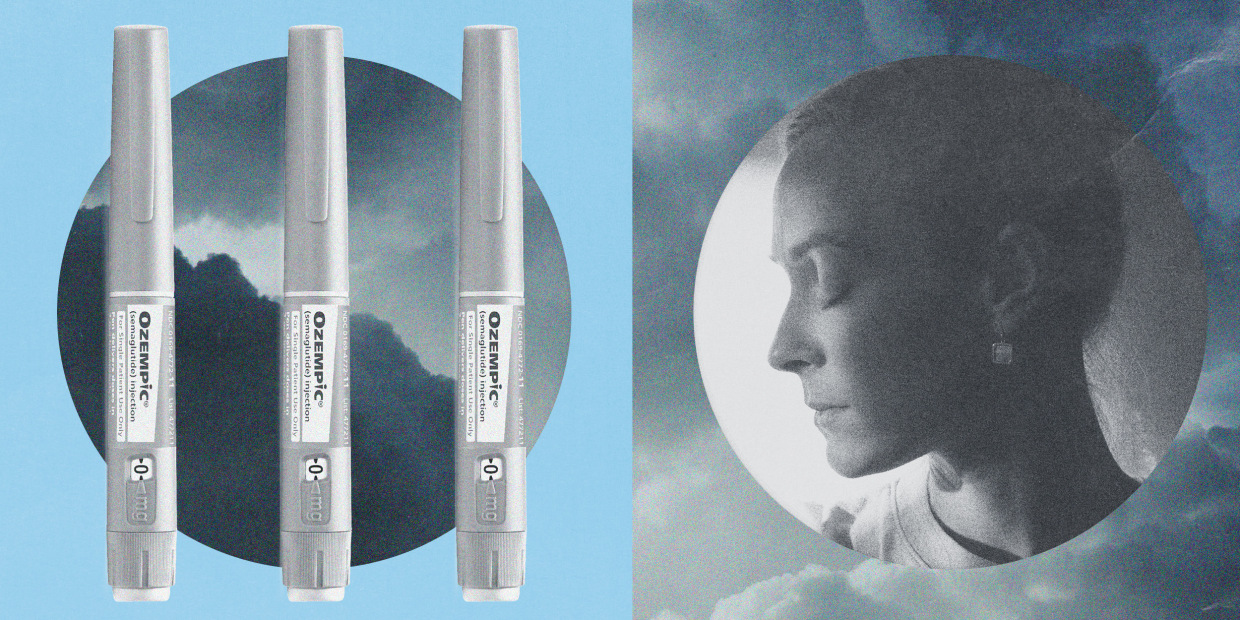Miracle Drug? No
"This could all be not a real issue, but when you're talking about perioperative aspiration that can cause death, I think we need to act out of an abundance of caution.""Urgent and high quality research [needs to be done to figure out what the problem is, if any].""The reason why people come to the operating room fasted is for an important reason: we want the stomach to be empty to reduce the chance of aspiration.""[The drugs are of] potential enormous public health importance [taking into account staggering rates of obesity and Type 2 diabetes].""[If there is a] legitimate [link between the weight loss drugs and suicidal ideation] it is undoubtedly rare."Dr. Philip Jones, professor of anesthesiology, Mayo ClinicDeputy editor-in-chief Canadian Journal of Anesthesia"[My concern is that the] vigorous advertising on U.S. television that shows Ozempic users happily doing yoga or playing pickle ball [could obscure the fact that they're] serious medications with a variety of possible side-effects.""It's not a miracle drug as so many social media sites claim. There are no miracles in science."Dr. Joe Schwarcz, director, Office for Science and Society, McGill University
 |
| Whether they're plastered over streetcars or displayed at Toronto Blue Jays games, advertisements for Ozempic — a diabetes drug that's increasingly being used for weight loss — seem to be everywhere. |
With the growing popularity of these drugs, reports of possible adverse reactions are emerging. Among them recent stories including a possible increased risk of "gastroparesis", a condition affecting nerves and muscles of the stomach, and as well, suicidal ideation in users. Experts feel no evidence exists of cause-and-effect relationships. Should there be a "legitimate" link between weight loss drugs and suicidal ideation "It is undoubtedly rare".
 |
The drugs are typically taken through once-weekly injections of a pre-filled pen. The medication works partially through delaying gastric emptying, where food remains in the stomach longer before it reaches the intestines, and thus having the effect of making people feel well fed for a longer period of time. The issue of pulmonary aspiration, leading to pneumonia, respiratory distress and possibly death has arisen as a concern among American and Canadian anesthesiologists, as a "signal of concern".
Which is to say, a potentially life-threatening complication for patients undergoing surgery; the risk specifically of such patients regurgitating stomach contents under sedation, and inhaling food into their lungs. A smattering of case reports and small observational studies have arisen relating to patients taking Ozempic or related drugs among whom significant amounts of food remained in their stomachs while under anesthesia, even after 18 hours of fasting.
 |
| Ozempic, which is used to treat Type 2 diabetes and obesity, is among medications containing GLP-1 receptor agonists that are under review by Health Canada over concerns of suicide risk. (Joel Saget/AFP/Getty Images) |
"Patient safety is of utmost importance to Novo Nordisk and we take all reports about adverse events from use of our medicines very seriously.""Our team is continuously monitoring the safety profile of our products and collaborating closely with health authorities to ensure patient safety information, including adequate information on side-effects, are included in the product monograph.""[We] remain confident in the benefit risk profile [of our drugs]."Kate Hanna, director of communications, Novo Nordisk Canada
Labels: Diabetes Drug, Gastrointestinal Issues, Off-Label Ozempic, Respiratory Distress, Semaglutide, Weight-Loss Therapy

0 Comments:
Post a Comment
<< Home